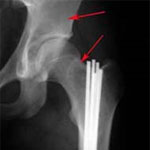My question is about the sox21 gene. I was ecstatic when the news broke that scientists have discovered the “hair loss gene.” I am wondering if there has been any progress with this, or even any attempt. Who is doing the research to further understand this gene and search for its connection with the cure for hair loss? Although its been less than a year, and the hair loss prevention field of science seems to move extremely slow, I still figured we would have heard more about this in the news.
I understand if you have no insider information on the subject, but I don’t know where else to go for the latest in hair loss related news. thanks.
The following response is by UK-based physician Dr. Bessam Farjo:
Of course it is very exciting whenever there is news about scientific discoveries in our field. However, do keep in mind that hair loss and restoration are very attractive subjects in the media, and I find some scientists or institutions take advantage of that to attract publicity and hopefully additional funding for their research. My understanding was that the group who studied the sox21 gene were not investigating hair loss nor were they interested in this subject. The study was on mice, not humans, and showed a relationship between this gene in the mouse and TOTAL body hair loss in it. This does not necessarily mean there is any relationship with inherited patterned hair loss in humans.
The researchers were speculating as a result of their findings that this may help in the future with hair loss research in humans. Significantly they also stated that they had no intention of investigating this further. As far as I know there has not been any further results or conclusions with regards to sox21.
–
Learn more about the author of this article, Dr. Bessam Farjo, on his BaldingBlog profile or at his website.



Paid advertisements (not an endorsement):
![]()
![]()



 I’m familiar with
I’m familiar with 
